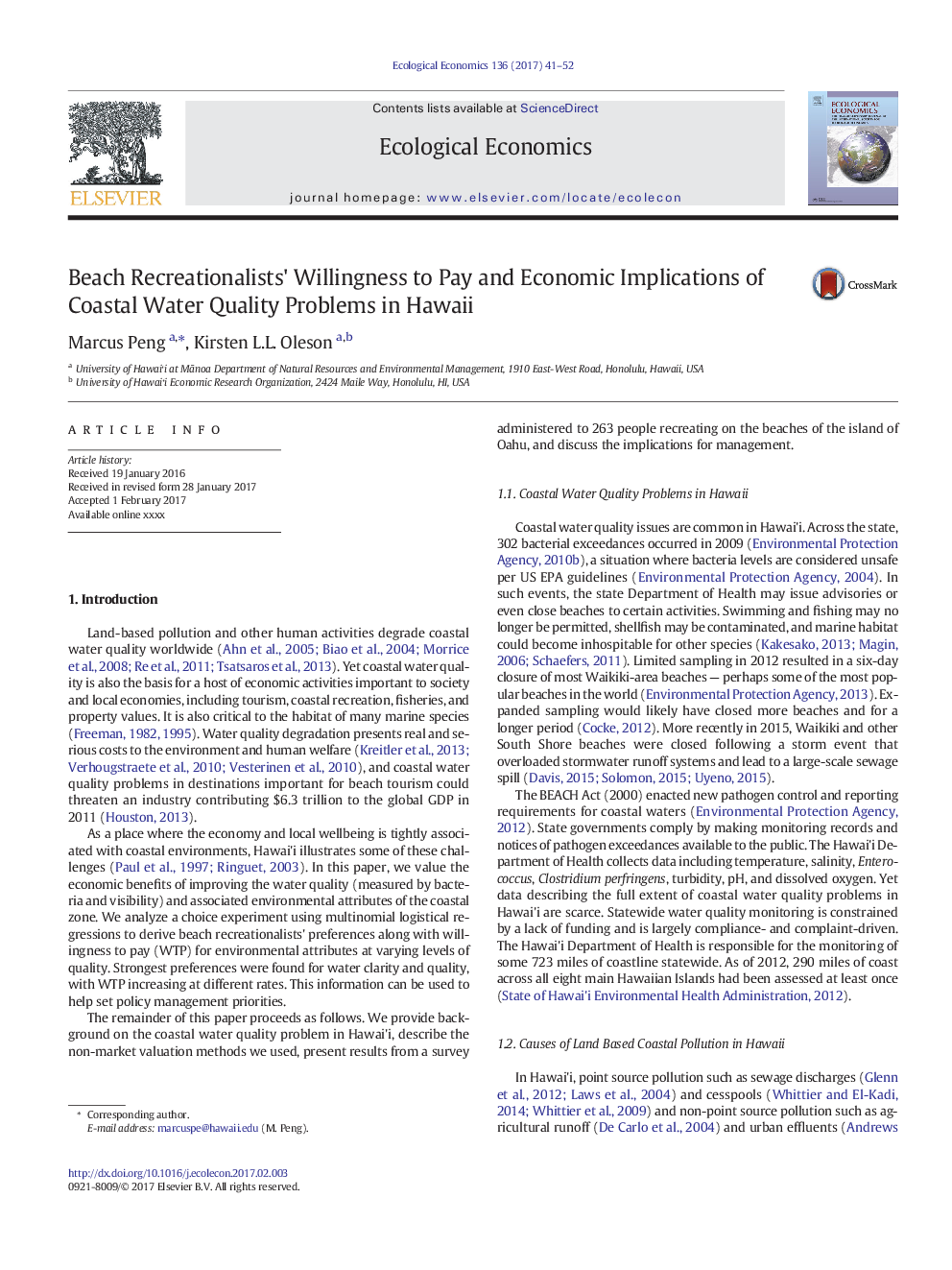ترجمه فارسی عنوان مقاله
خواسته ساکنان ساکن منطقه ای برای پرداخت هزینه ها و پیامدهای اقتصادی مشکلات کیفیت آب ساحلی در هاوایی
عنوان انگلیسی
Beach Recreationalists' Willingness to Pay and Economic Implications of Coastal Water Quality Problems in Hawaii
| کد مقاله | سال انتشار | تعداد صفحات مقاله انگلیسی |
|---|---|---|
| 148666 | 2017 | 12 صفحه PDF |
منبع

Publisher : Elsevier - Science Direct (الزویر - ساینس دایرکت)
Journal : Ecological Economics, Volume 136, June 2017, Pages 41-52
ترجمه کلمات کلیدی
ارزیابی غیر بازار، آزمایش انتخابی گسسته، کیفیت آب، دید در زیر آب، صخره های مرجانی، تنوع ماهی، تفریح ساحل، اوهو، هاوایی،
کلمات کلیدی انگلیسی
Non-market valuation; Discrete choice experiment; Water quality; Underwater visibility; Coral reefs; Fish diversity; Beach recreation; Oahu; Hawaii;

